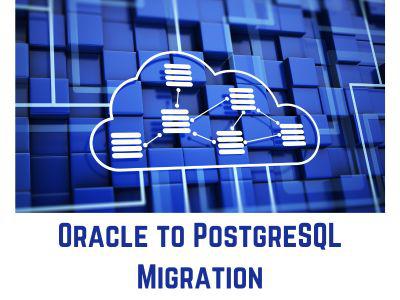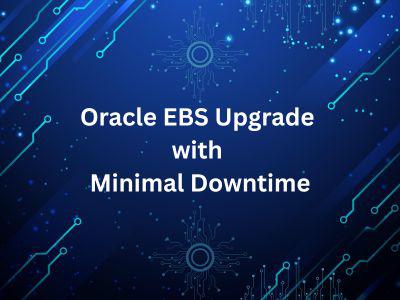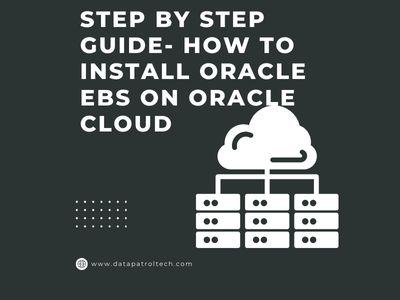- August 19, 2025
by Gauri Wahab - Sr. Sales & Marketing Officer
A comprehensive analysis for technical business leaders considering database modernization

Introduction: The Enterprise Database Dilemma
The database landscape is experiencing a seismic shift. According to recent industry surveys, 67% of enterprises are actively evaluating alternatives to proprietary database systems, with PostgreSQL leading the charge as the fastest-growing database platform for three consecutive years.
This movement isn't just about cost optimization—it's about strategic positioning for the cloud-native future. However, the question "Is migrating from Oracle to PostgreSQL really cost-effective?" requires a nuanced answer that goes far beyond comparing license fees.
PostgreSQL has emerged as Oracle's most formidable competitor, but the migration decision involves complex trade-offs that technical business professionals must carefully evaluate. This analysis provides a comprehensive framework for making informed decisions about database modernization.
Oracle vs PostgreSQL: A Strategic Comparison
Licensing Models: The Obvious Difference
Oracle's Commercial Licensing:
- Per-core pricing ranging from $17,500 to $47,500 per core for Enterprise Edition
- Additional costs for options like Partitioning ($11,500/core), Advanced Security ($15,000/core)
- Support fees typically 22% of license costs annually
- Cloud licensing can be 2-5x more expensive than on-premises
PostgreSQL's Open-Source Advantage:
- Zero licensing costs for the core database
- Commercial support available from vendors (typically $2,000-$15,000 annually per server)
- No feature restrictions or per-core limitations
- Freedom to deploy across unlimited environments
Feature Parity Analysis:
| Capability | Oracle 19c/21c | PostgreSQL 16 | Migration Complexity |
|
ACID Compliance |
Full |
Full |
Low |
|
Advanced SQL |
Extensive |
Comprehensive |
Medium |
|
Partitioning |
Automatic |
Declarative |
Medium |
|
JSON Support |
Good |
Superior (JSONB) |
Low |
|
Full-Text Search |
Oracle Text |
Native + Extensions |
Medium |
|
Replication |
Data Guard |
Logical + Physical |
High |
|
Clustering |
RAC |
Third-party solutions |
High |
|
PL/SQL |
Native |
PL/pgSQL (requires refactoring) |
High |
Ecosystem Maturity Assessment
Oracle's Enterprise Ecosystem:
- 40+ years of enterprise refinement
- Comprehensive tooling (OEM, AWR, ASH)
- Extensive partner ecosystem
- Deep integration with Oracle middleware stack.
PostgreSQL's Growing Ecosystem:
- Rapid innovation cycle with annual releases
- Vibrant extension ecosystem (PostGIS, TimescaleDB, pg_cron)
- Strong cloud provider support (AWS RDS, Google Cloud SQL, Azure Database)
- Growing enterprise tooling landscape
The Hidden Costs of Migration: What CFOs Don't See
Migration costs extend far beyond the obvious technical work. Our analysis of enterprise migrations reveals several cost categories that are frequently underestimated:
Application Code Refactoring (30-60% of total migration cost)
PL/SQL to PL/pgSQL Translation:
- Stored procedures require manual rewriting
- Oracle-specific features like CONNECT BY, MERGE statements
- Different exception handling mechanisms
- Estimated effort: 40-80 hours per 1,000 lines of PL/SQL code.
Example Impact: A financial services company with 250,000 lines of PL/SQL code spent approximately $850,000 on code refactoring alone, representing 45% of their total migration budget.
Performance Optimization and Tuning (20-35% of total cost)
Database Parameter Tuning:
- PostgreSQL's 200+ configuration parameters vs Oracle's auto-tuning
- Memory allocation strategies differ significantly
- Query optimizer behavior variations
Indexing Strategy Redesign:
- Oracle's Cost-Based Optimizer vs PostgreSQL's planner
- Different index types and performance characteristics
- Partition pruning logic variations
Staff Training and Change Management (15-25% of total cost)
DBA Skill Transition:
- 3-6 months for experienced Oracle DBAs to become proficient in PostgreSQL
- Training costs: $5,000-$15,000 per DBA
- Temporary consultant fees: $150-$250/hour during transition
Development Team Impact:
- SQL dialect differences require developer retraining
- New debugging and profiling tools
- Different backup and recovery procedures
Infrastructure and Tooling (10-20% of total cost)
Monitoring and Management Tools:
- Replacement for Oracle Enterprise Manager
- New backup solutions (pg_dump, Barman, pgBackRest)
- Performance monitoring stack (pg_stat_statements, pgBadger)
PostgreSQL Strengths: Why Enterprises Are Making the Switch
Financial Flexibility
Zero Licensing Constraints:
- Deploy unlimited development, testing, and production environments
- Scale without license negotiations
- Allocate budget to infrastructure and talent instead of licenses
Cloud Economics:
- 60-80% lower total cloud costs compared to Oracle Cloud
- Multi-cloud deployment without vendor lock-in
- Container-friendly licensing model
Technical Innovation Velocity
Modern Architecture Readiness:
- Kubernetes-native with multiple operators available
- Microservices-friendly with connection pooling
- DevOps integration with Infrastructure as Code tools
Extension Ecosystem:
- PostGIS for geospatial applications
- TimescaleDB for time-series data
- FDW (Foreign Data Wrappers) for data federation
- Custom extensions for specific business needs
Performance Advantages in Specific Workloads
JSON and Semi-Structured Data:
- JSONB performance often 2-3x faster than Oracle's JSON implementation
- Native indexing and querying capabilities
- Document database functionality within a relational framework.
Analytical Workloads:
- Parallel query execution capabilities
- Advanced window functions
- Columnar storage extensions (like Citus)
Real Cost Analysis: TCO Beyond the Headlines
3-Year TCO Comparison Example
Medium Enterprise Scenario:
- Current Oracle deployment: 32 cores, Enterprise Edition with options
- Estimated workload: 50TB database, 500 concurrent users, 24/7 operations
Oracle 3-Year Costs:
- License costs: $2,800,000
- Annual support: $616,000 × 3 = $1,848,000
- Hardware/infrastructure: $450,000
- Total Oracle TCO: $5,098,000
PostgreSQL 3-Year Costs:
- License costs: $0
- Migration project: $750,000
- Commercial support: $45,000 × 3 = $135,000
- Additional hardware: $200,000
- Training and consulting: $180,000
- Total PostgreSQL TCO: $1,265,000
Net Savings: $3,833,000 (75% reduction)
When Oracle Makes More Sense
High-Complexity Scenarios:
- Extensive use of Oracle RAC for high availability
- Deep integration with Oracle middleware (WebLogic, SOA Suite)
- Heavy reliance on Oracle-specific features (Advanced Queuing, Spatial)
- Mission-critical applications where downtime costs exceed migration investment
Risk-Averse Organizations:
- Regulatory environments requiring vendor SLAs
- Limited technical expertise for open-source management
- Applications nearing end-of-life (migration ROI questionable)
How Data Patrol Technologies Delivers Migration Success
Vendor-Neutral Assessment Methodology
Unlike vendors with database preferences, we provide objective recommendations based on your specific requirements:
Technical Fit Analysis:
- Comprehensive application dependency mapping
- Performance benchmark comparisons
- Feature gap analysis with mitigation strategies
- Risk assessment matrix with probability-weighted costs.
Custom TCO Calculator
Our proprietary model includes often-overlooked costs:
- Application testing and validation cycles
- Data synchronization during cutover
- Business continuity during migration
- Post-migration performance optimization
DBA-Led Assessment Teams
Deep Technical Evaluation:
- Current Oracle workload characterization using AWR reports
- Query complexity analysis and PostgreSQL compatibility scoring
- Storage and memory utilization patterns
- Backup and recovery requirement mapping
Migration Simulation Services
Risk Mitigation Through Testing:
- Full-scale PostgreSQL environment setup
- Application compatibility testing
- Performance benchmarking with actual workloads
- User acceptance testing coordination
Example Results: A manufacturing client's simulation revealed 23% performance improvement in their reporting workloads, validating the migration decision before committing resources.
Post-Migration Performance Guarantee
SLA-Backed Optimization:
- 90-day performance equivalency guarantee
- Query response time matching or improvement
- Automated monitoring and alerting setup
- Emergency response team availability
Case Study Insights: Real-World Migration Success
Drawing from our Oracle to PostgreSQL migration experience using Ora2PG, key success factors include:
Assessment Phase Results
- Migration Complexity Score: Medium (67/100)
- Estimated Refactoring Effort: 320 hours
- Data Migration Time: 8 hours for 12TB database
- Application Downtime: 4 hours
Performance Outcomes
- Query Performance: 15% improvement in OLTP workloads
- Analytical Queries: 35% faster with proper indexing
- Storage Efficiency: 22% reduction due to better compression
- Maintenance Windows: Reduced from 6 hours to 2 hours monthly
Cost Benefits Realized
- Year 1 Savings: $385,000 in avoided Oracle license fees
- 3-Year Projection: $1.2M total cost avoidance
- Migration ROI: 340% over 3 years.
Final Verdict: Is PostgreSQL Migration Really Cost-Effective?
The answer is nuanced: PostgreSQL migration can deliver substantial cost savings, but success depends on proper planning, realistic expectations, and expert execution.
When Migration Makes Sense:
- Oracle license costs represent >15% of IT budget
- Applications can tolerate moderate refactoring
- Organization has or can acquire PostgreSQL expertise
- Cloud-native transformation is a strategic priority
- Growth projections make Oracle licensing unsustainable
When to Proceed with Caution:
- Mission-critical applications with complex Oracle dependencies
- Limited technical resources for migration project management
- Tight deadlines that don't allow for proper testing and validation
- Regulatory requirements specifically mandate Oracle features
The Strategic Perspective
Choose PostgreSQL not merely because it costs less, but because it positions your organization for the future:
- Vendor Independence: Avoid licensing negotiations and surprise audit costs
- Innovation Velocity: Access to cutting-edge features without upgrade fees
- Cloud Flexibility: Deploy anywhere without licensing restrictions
- Talent Availability: Growing pool of PostgreSQL expertise vs. declining Oracle skills market
Take Action: Start Your Migration Assessment
Database modernization represents one of the most impactful cost optimization opportunities available to enterprises today. However, success requires expert guidance and careful planning.
Free Migration Feasibility Assessment
Data Patrol Technologies offers a comprehensive evaluation including:
Technical Assessment:
- Current Oracle workload analysis
- PostgreSQL compatibility scoring
- Migration effort estimation
- Risk identification and mitigation planning
Financial Analysis:
- 5-year TCO comparison
- Migration investment requirements
- ROI projections with sensitivity analysis
- Hidden cost identification
Strategic Roadmap:
- Phased migration approach
- Timeline and resource requirements
- Success metrics and KPIs
- Post-migration optimization plan
Contact Data Patrol Technologies
Ready to explore your Oracle to PostgreSQL migration potential?
Schedule Your Free Consultation:
- Email: info@datapatroltech.com
- Phone/WhatsApp: +91 8484839896
- Website: www.datapatroltech.com
Our database migration experts will provide an honest, vendor-neutral assessment of your migration feasibility and potential benefits. Don't let Oracle licensing costs drain your IT budget—discover your PostgreSQL migration opportunity today.
About the Author: This analysis is based on Data Patrol Technologies' experience with 50+ enterprise database migrations and comprehensive market research. Our team of certified database professionals specializes in vendor-neutral database strategy and migration services.


